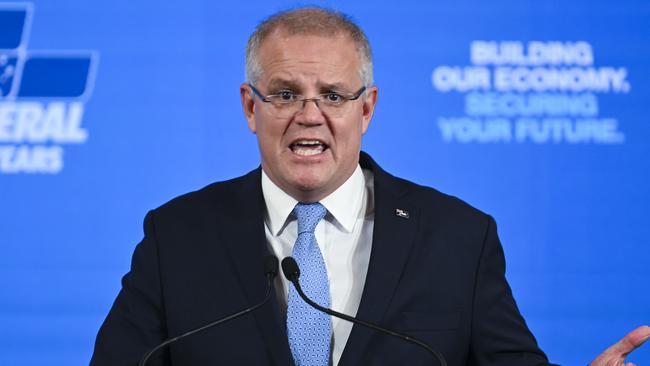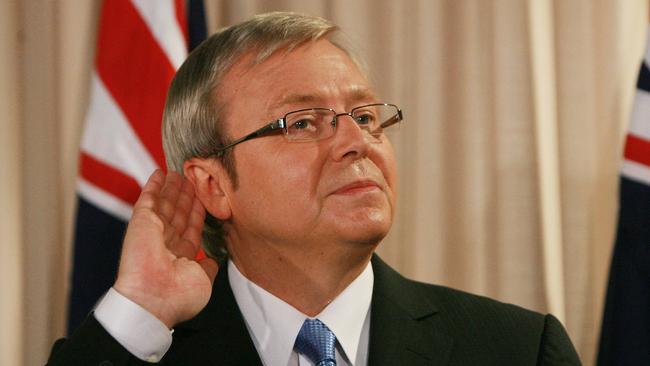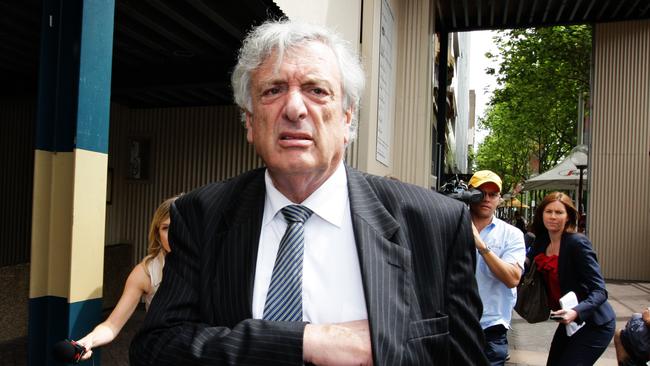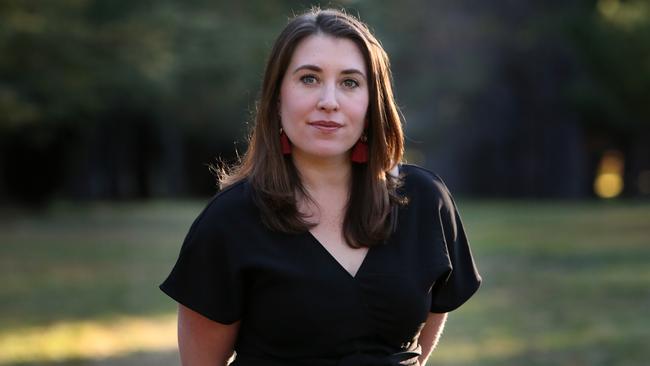David Penberthy: Scott Morrison’s ‘Canberra bubble’ excuse doesn’t cut it
If there’s one thing the Prime Minister’s recent attitude towards press freedom has shown us, it’s that if anyone is living in a bubble it’s him, not the rest of us, writes David Penberthy.
With a few admirable exceptions, it is a truism that governments and public figures are unwavering champions of press freedom — until someone publishes something that really annoys or embarrasses them.
In my years as a reporter and editor, I can recall several cases where people who were ultimately exposed as genuine crooks were the ones who complained with the highest level of indignation about media scrutiny. Scrutiny which, at the time, they described as baseless and outrageous, before receiving their eventual comeuppance when they were proven to be shonks.
Aptly enough, for a column about press freedom and your right to know, my hands are legally tied in providing the fullest possible account here of my time covering NSW politics in the late 2000s when Labor was in power.
MORE OPINION: Dutton’s press freedom plea shouldn’t ease our concern
I met a lot of good MPs during that period, and I met a few who wound up in jail, or are facing jail, but for legal reasons that go to the prospect of future fair trials, we will find our examples elsewhere.

The one thing I can say is that all these people held a deep-seated hostility towards the media, and regarded any scrutiny as unfair and unwelcome, and would often threaten legal action against anyone who dared inquire into their business.
At its most benign, you can see how otherwise decent governments take a much more controlling approach when they are actually in power, versus when they were in opposition.
MORE FROM DAVID PENBERTHY: Sneering elites wrong to misjudge Hillsong
They will do so on matters of genuine public interest, all the time, using the flimsiest of excuses. In my home state of South Australia, where the Liberals came to power last year after 16 years of Labor rule, the former Opposition was constantly frustrated by the then Labor Government’s lack of transparency over commercial dealings and the inner workings of the bureaucracy. In the past fortnight, there were two examples of the kind of thing the new Liberal Government would have condemned in opposition — its refusal to release precise numbers of how many South Australians live or work in buildings with dangerous flammable cladding, and the resignation of an aged care whistleblower, a former Liberal Party campaigner, who is fed up with being lied to by the Health Department about his important campaign to install CCTV cameras in aged care homes.

Neither of these are shockingly egregious examples of censorship, but they do help underscore the manner in which it suits governments to keep things to themselves.
There is a tendency — regrettably enough one that has been reinforced by our current prime minister — to dismiss the notion of press freedom as a “Canberra bubble” issue of interest to no-one other than grizzled old hacks in the Press Gallery.
MORE OPINION: AFP raids had nothing to do with national security
Press freedom is not about the apparently God-given right of journos to burst into print with any old piece of unsubstantiated tosh.
That right is actually bestowed upon MPs, perversely enough, in the form of parliamentary privilege, which gives them an unquestionable protection against defamation for anything they choose to say within the coward’s castle of parliament.
Press freedom is ultimately about the right of people like you to know exactly what their politicians and public officials are really getting up to, particularly in those extreme cases when they break the law.

I can recall a number of instances where people who were cashed up and connected were quick to claim they were being victimised by the press when they faced deserved scrutiny.
The most audacious of these was the former Federal Court Judge Marcus Einfeld, once regarded as a national living treasure for his brand of crusading liberalism, who as a judge had sentenced people to jail time for perjury.
When my former newspaper, The Daily Telegraph, discovered that Einfeld may have been a perjurer himself, using the name of a dead friend to dodge a paltry $77 speeding fine by claiming she was driving his car when he exceeded the speed limit on Sydney’s North Shore, an indignant Einfeld claimed to be the victim a media witch hunt, and his powerful friends fell in behind him.
Einfeld’s ultimate downfall was a remarkable morality tale, which went to the valid Australian suspicion that there are often two sets of rules, one for the plebs, one for the people in power. If the privacy provisions that are demanded by media critics were in place, Enfield’s act of conceit could not have been exposed.

At the federal level, the lamer politicians will oscillate between being chummy with the press when things are going good, and downright hostile when their governments are on the nose.
Kevin Rudd is the best example of the phenomenon. When Rudd was in his unstoppable ascendancy ahead of the 2007 election, his obsequious desire to ingratiate himself with editors and proprietors was so profound that he became the stuff of jokes in media circles. When his government imploded — largely as a result his deeply irritating personality — Rudd’s foil for his own failings was to blame his demise on a vast conspiracy involving the Murdoch press, into which he would now like a Royal Commission.
The right not to trust people in power is not enshrined in any piece of legislation, but it’s a sentiment that is shared between the public and the profession I inhabit.
The next time someone tells you that talk of press freedom is a Canberra bubble story, they’re lying, because it’s actually about you — and about your right to know the truth about how people in power are truly operating. It is for this reason that the Morrison Government is on thin ice over its ambivalence about the appalling raid of my colleague Annika Smethurst’s home. Her “crime” was to break a genuinely important story revealing that the heads of the defence and home affairs ministries had discussed new powers to allow the Australian Signals Directorate to spy on Australian citizens for the first time.
If that’s not in the public interest, nothing is, and if Scott Morrison thinks it’s a “Canberra bubble” issue that Smethurst was raided, well, Scomo is living in a bubble himself.

